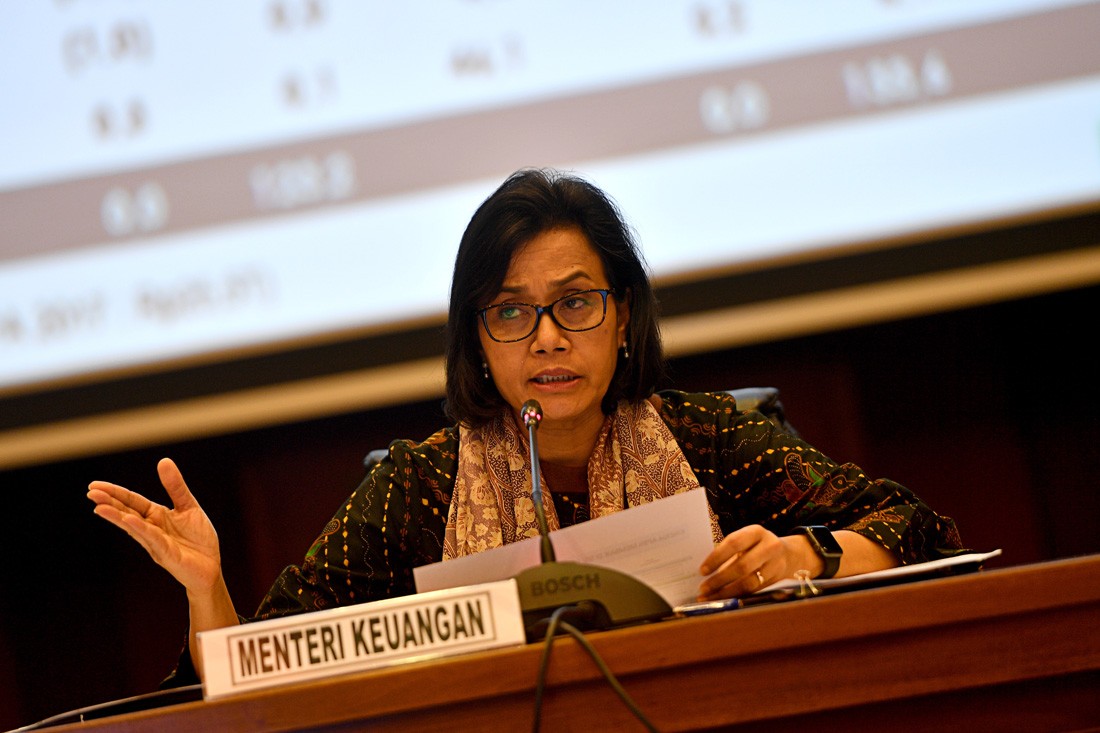Popular Reads
Top Results
Can't find what you're looking for?
View all search resultsPopular Reads
Top Results
Can't find what you're looking for?
View all search resultsMounting downside risks
Sri Mulyani rightly views defending the credibility of fiscal management as crucial amid the mounting global uncertainty to maintain market confidence in the country’s macroeconomic stability.
Change text size
Gift Premium Articles
to Anyone
W
e appreciate Finance Minister Sri Mulyani Indrawati’s note of precaution early this week on the increased global economic risks as the new coronavirus has spread not only in China, but worldwide. Inside China, one senses growing helplessness and panic amid declining business confidence. If the situation cannot be controlled soon, most of the mainland could go on lockdown.
Even before the epidemic, the Economist Intelligence Unit predicted that China’s economic growth would decline from 6.1 percent last year to 5.9 percent this year. The epidemic could trim the growth by another percentage point to 4.9 percent.
This certainly would adversely affect Indonesia’s economy, as China is our largest trading partner and one of the largest sources of foreign investment and tourists.
We therefore see it very important that Sri Mulyani immediately conveyed the right message to the market, reiterating the government’s commitment to maintain the 2020 fiscal deficit at the 1.8 percent of gross domestic product target at least until the end of the first half. Last year’s budget deficit of 2.2 percent was higher than the target of 1.78 percent but still way below the legal ceiling of 3 percent.
Sri Mulyani rightly views defending the credibility of fiscal management as crucial amid the mounting global uncertainty to maintain market confidence in the country’s macroeconomic stability. The risk premium for such a twin-deficit (budget and balance of payments) economy as Indonesia’s cannot be checked if that credibility is compromised.
But the limited fiscal space requires stronger private spending and investment as the main drivers of growth. The consequence of all this is that the government should go all out to maintain consumer and business confidence by seriously delivering on its promise to improve the investment climate.
Here lies the urgency of achieving a national political consensus for the enactment of the omnibus bills on job creation and taxation, which would remove most of the biggest barriers to business and provide tax incentives to investment in top-priority sectors.
We realize that a big bang and sweeping reform as the one the government is now preparing is politically not easy because it will try to wipe out the rent-seeking that has built up within the old system.
But a business-as-usual pace of regulatory reform would be ineffective to jumpstart investment because almost 80 laws and more than 2,500 clauses and regulations affecting the business sector would have to be amended to make the regulatory environment businessfriendly.
Fortunately, the low and stable inflation, at only 2.7 percent last year, it was the lowest in two decades, would allow Bank Indonesia to further ease its money policy to inject more lifeblood (credit) into the economy.
Most analysts foresee another two or three 25-basis-point cuts in the central bank’s benchmark rate this year, following last year’s four 25-basis-point cuts.










